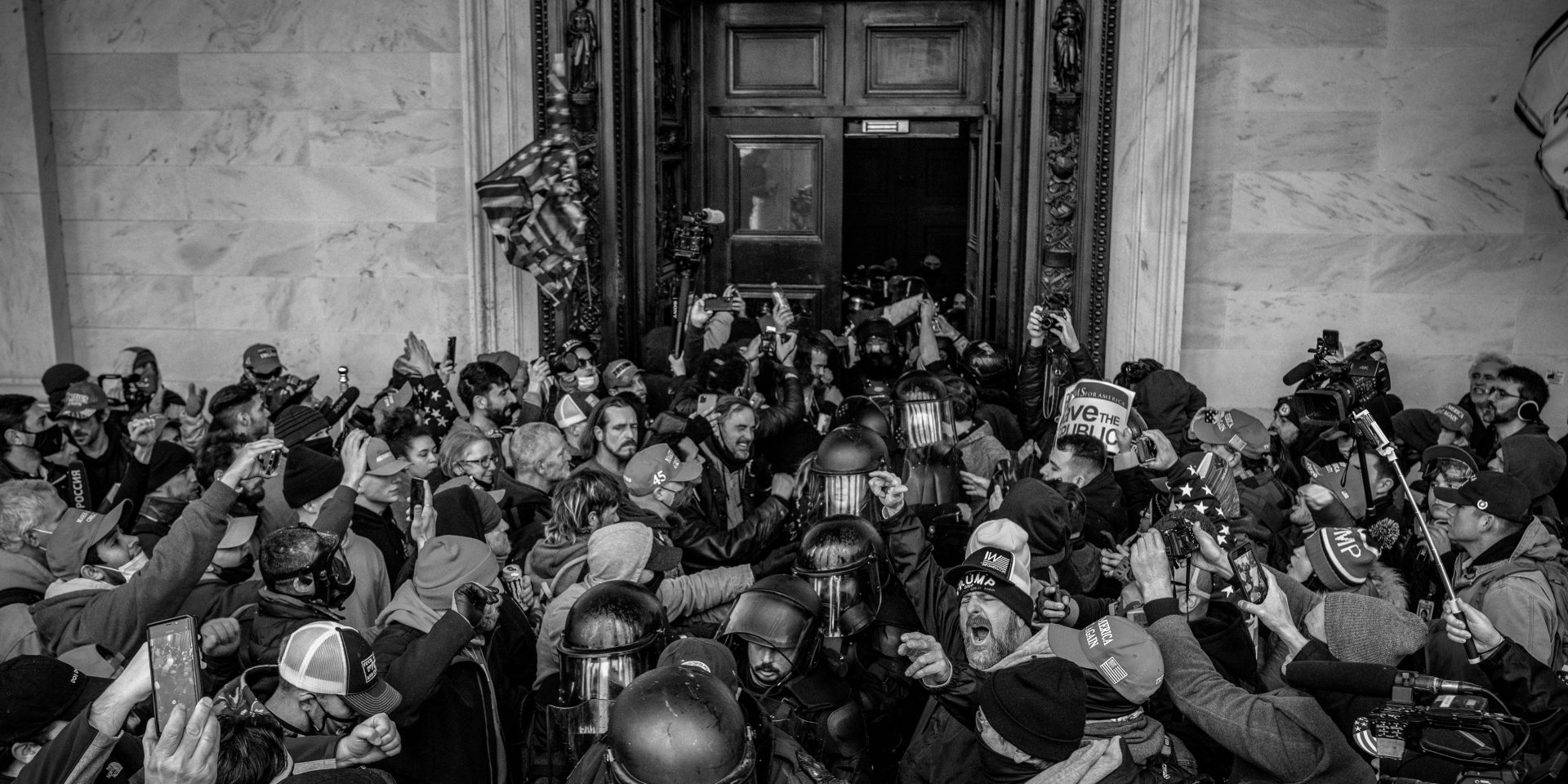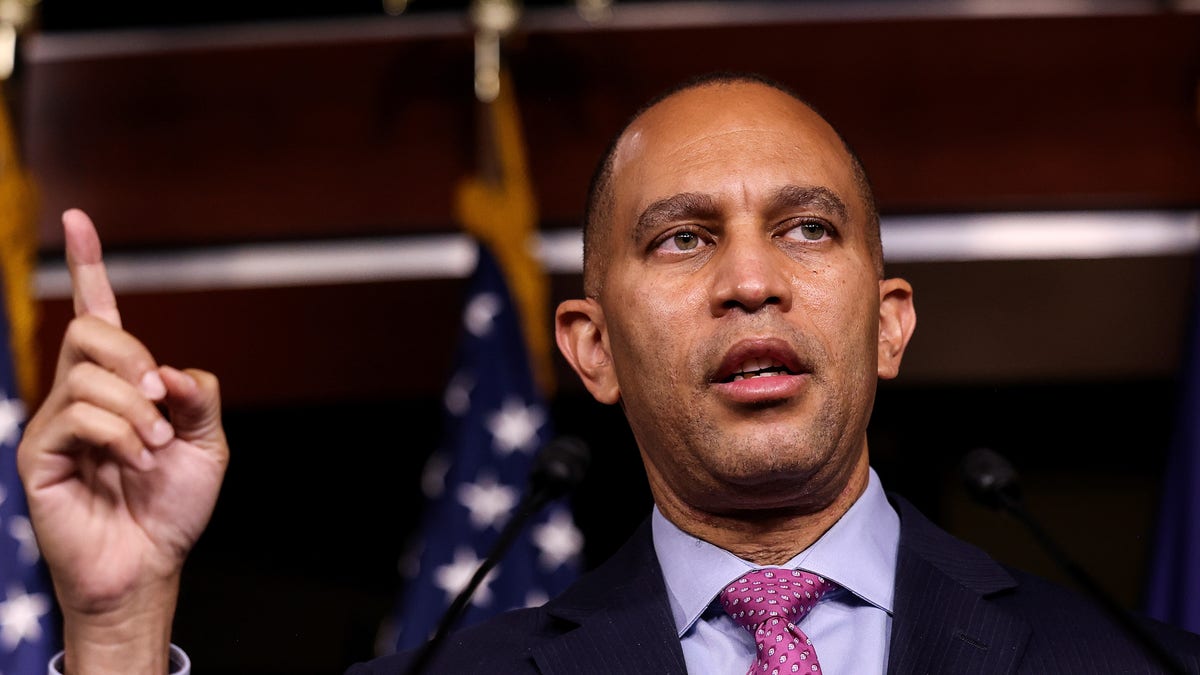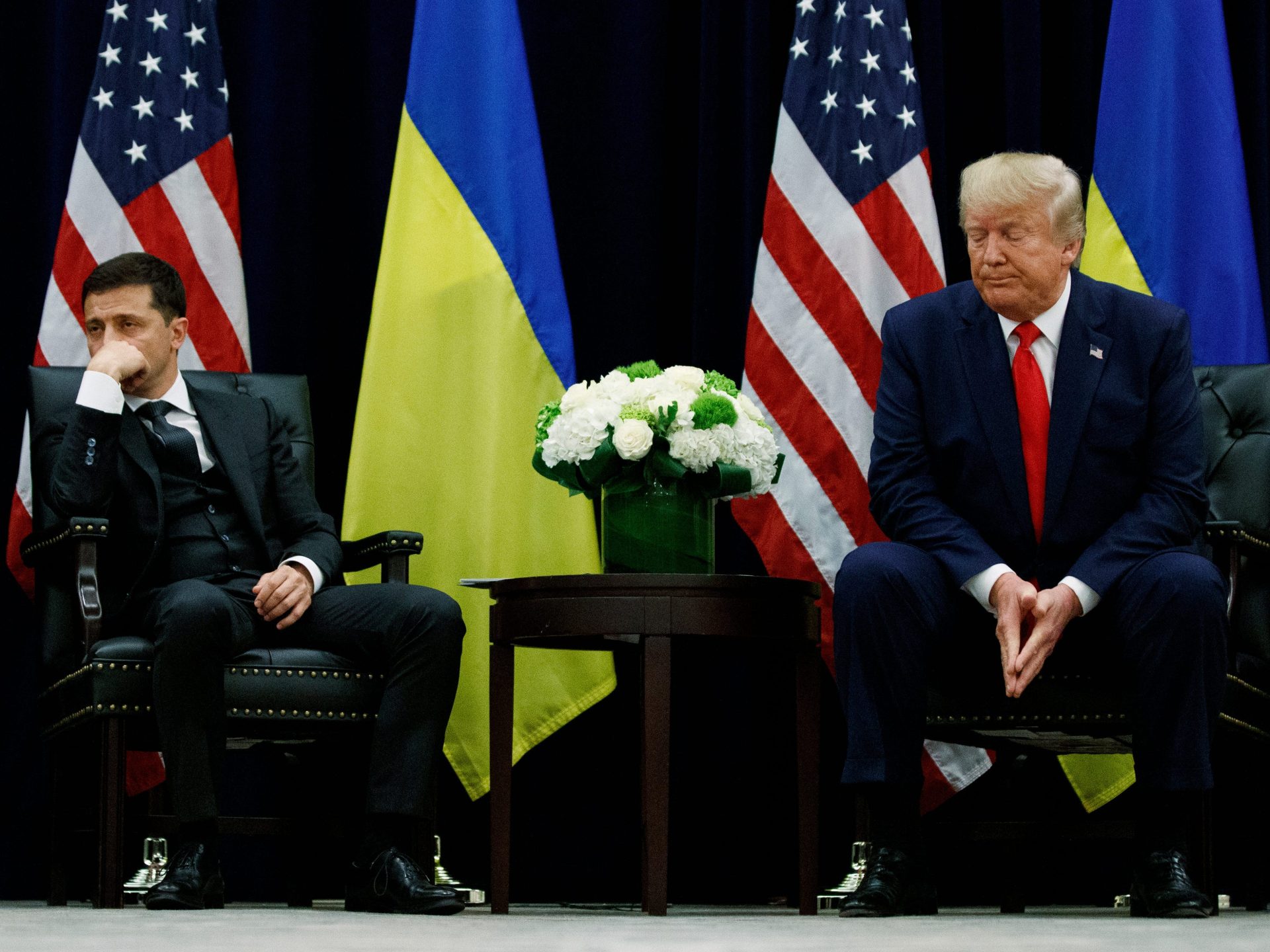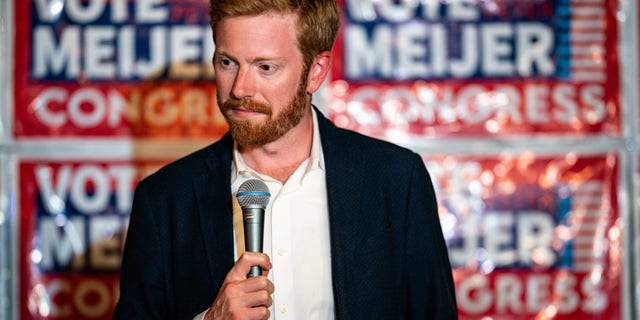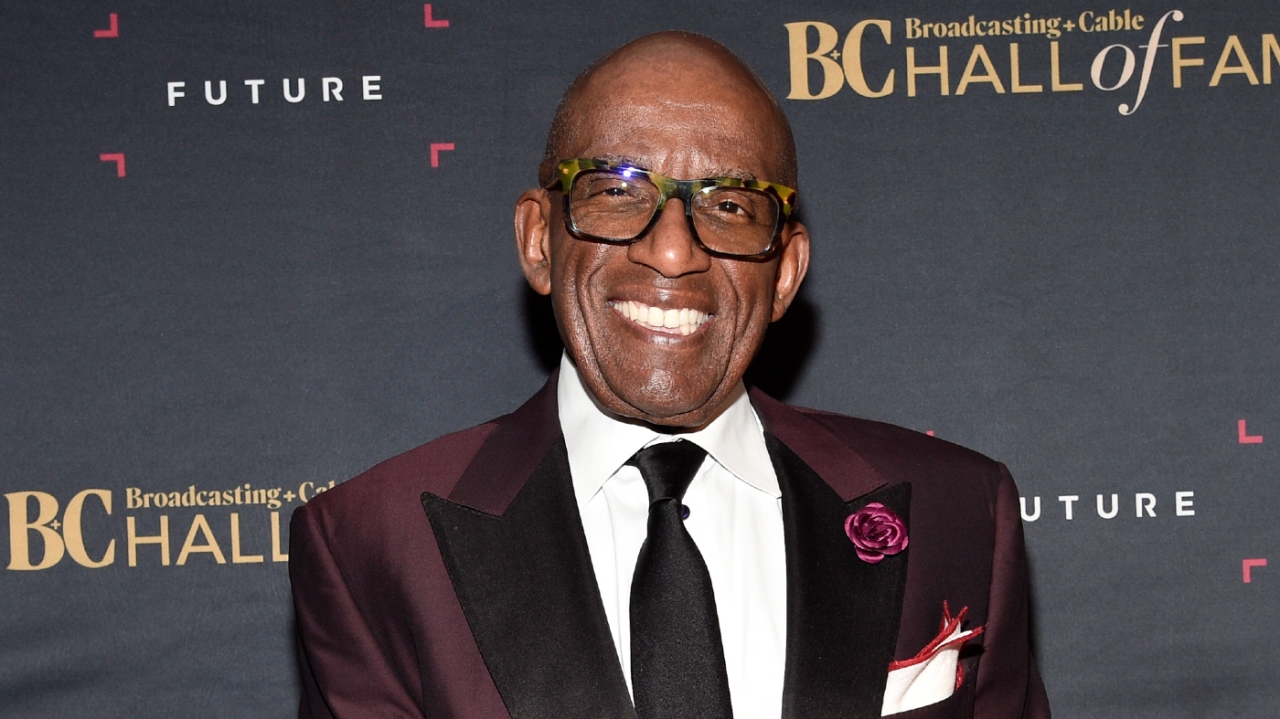The Intercept
“The battle between good and evil has come now.”
— Senior staff member in the U.S. Senate
In the Cormac McCarthy novel “Blood Meridian,” a man called Captain White leads a mounted company of American irregulars into northern Mexico on a mission to plunder and lay the groundwork for further U.S. expansion. “We are to be the instruments of liberation in a dark and troubled land,” he tells his men. As they ride, White notices dust clouds on the horizon. Through his spyglass, he sees a massive herd of cattle, mules, and horses being driven toward the company by what he takes for a band of stock thieves. They seem to pay his men no mind as the herd rumbles past. Then, suddenly, hundreds of mounted Comanche lancers and archers appear:
A legion of horribles … wardrobed out of a fevered dream with the skins of animals and silk finery and pieces of uniform still tracked with the blood of prior owners … one in a stovepipe hat and one with an umbrella and one in white stockings and a bloodstained wedding veil and some in headgear of cranefeathers or rawhide helmets that bore the horns of bull or buffalo and one in a pigeontailed coat worn backwards and otherwise naked and one in the armor of a Spanish conquistador.
I first read those lines 14 years ago, in a hostel bunk bed amid the wanderings of my early 20s. I was in Naples, where my great-grandfather had boarded a ship to America, and though faces on the streets looked eerily familiar, I felt only a tenuous connection to the city. The novel’s lines about a distant frontier, in contrast, instantly resonated, though I struggled to understand why. There was shocking clarity in the violence: The attackers butcher the Americans, “passing their blades about the skulls of the living and the dead alike and snatching aloft the bloody wigs and hacking and chopping at the naked bodies, ripping off limbs, heads.” The description of their garish attire, with its funhouse mockery of the would-be conquerors, left me with a lingering sense of vulnerability.
These lines resurfaced in my mind after the January 6 attack on the U.S. Capitol, an event whose meaning I’ve found myself continuing to interrogate as we approach its two-year anniversary. At the start of 2021, I was married, with one small child and another on the way, and living in a brick-house suburb of Washington, D.C. I’d covered conflicts in Syria, Iraq, and Ukraine, then returned, in 2017, to report on the sort of militant-minded Americans who ended up storming Congress. I had traveled to pre-election meetings with Stewart Rhodes, the Oath Keepers leader later convicted of seditious conspiracy for his role that day, and I’d been at a previous “Stop the Steal” rally, in November 2020, watching pot-bellied Proud Boys march around like Catholic school kids in matching polo shirts. On the morning of January 6, however, I stayed home. I was sick of it all: the crowds, the Covid risk, the threats of violence. I’d seen my share of real war at the margins of the U.S. sphere of influence and couldn’t stand another day of listening to comfortable Americans talk about inflicting such violence at home. It wasn’t just them, though. It was also me. In the interludes between my trips around the country, contemplating America’s breakdown from the desk in my sunroom, I’d found I no longer understood what my role was supposed to be.
A woman draped in an American flag near a broken window in the U.S. Capitol on Jan. 6, 2021.
Photo: Ashley Gilbertson/VII/Redux
Then the riot commenced. The Capitol was breached. I thought, if this is something that will overturn the republic — if it’s a real revolution — then my path is clear again, and there will be time to get to the Capitol tonight, tomorrow, and probably for days.
I was right and wrong. The riot was over in a matter of hours. Congress reconvened to certify the election result that night. But I thought the attack had struck a deeper, psychological blow whose impact was hard to see clearly. I felt it in the reactions from friends and neighbors, in the hysteria in the news, and in my own unease. The answer seemed to lurk behind the nature of the freakout. Turning back to the passage from “Blood Meridian,” I reconsidered what was so unnerving about it and wondered if the rioters, perhaps without realizing it, had tapped into the same anxiety the scene had animated in me years earlier. It conjures a fear about the edge of empire that has always lurked in the American mind, in which the frontier is the place where the violence and suffering the nation has inflicted as the terms of its expansion and sustainment bend back on us, and we encounter our demons. There’s an air of reckoning as the legion descends on Captain White’s company. The first weapons they brandish against the Americans are “shields bedight with bits of broken mirrorglass.”
“They came dressed for chaos,” read the New York Times the day after the Capitol was attacked, “in red, white and blue face paint and star-spangled superhero outfits, in flag capes (American, yes, but also Confederate and Trumpian) and flag jackets and Donald Trump bobble hats. One man came as a patriotic duck; another as a bald eagle; another as a cross between a knight-errant and Captain America; another as Abraham Lincoln. They came in all sorts of camouflage, in animal pelts and flak jackets, in tactical gear.” Other writers noted the “seditionist frontiersmen” and “revolutionary cosplayers” and “Confederate revivalists.” The ghosts were rising up from across the American centuries. Solemn-eyed Christians with their wooden cross. The gallows with its noose. Militants dressed like our modern Forever War soldiers. Some of them, indeed, had been those soldiers, and here they were in their battle attire. A writer for The Atlantic described spending time among a group of protesters that included two men in camouflage and Kevlar vests, along with a woman in a full-body cat suit. He was confronted by a sense of mystery. The event, he wrote, was “not something that can be explained adequately through the prism of politics.” No — the meaning lay in the subliminal. What these people were describing were their nightmares about the edge of empire, come to life, and massing in the heart of Washington, D.C.
The legion advanced holding up a mirror, and I looked at my reflection. It clarified the unease that had been troubling me at my desk. If that side had the aspect of barbarians ready to sack the Capitol, then my side might be manning the imperial gates.
Photo: Ashley Gilbertson/VII/Redux
Five days after January 6, a writer who uses the pen name John Mosby, after a famous Confederate guerrilla, posted an essay about the attack online. It began with a question he said a friend had asked him that day: “Ever see a government starting to totally lose control and just flail ineffectually?”
Mosby describes himself as a Special Forces veteran who deployed to Afghanistan after 9/11, though he is guarded about specifics. His friend’s question was rhetorical: Part of the job of a Green Beret is to operate in the chaos of broken countries. One thing that serving in or otherwise witnessing recent U.S. wars can also show you, though, is America’s own weakness, laid bare in the yawning gap between what it promised in those wars and what it was able to achieve. For more than a decade on “Mountain Guerrilla,” Mosby’s blog and now Patreon page, and in survivalist and tactical guides that people in militant and prepper circles discuss with reverence, he has laid out an apocalyptic understanding of the world centered on the idea of America’s decline and eventual collapse.
Two aspects of Mosby’s post are striking in relation to January 6. The first is his starting point: America is an empire. Prominent U.S. thinkers once wrestled with this idea, with Mark Twain and others making the Anti-Imperialist League a political force during Theodore Roosevelt’s presidency. These days, the concept often seems relegated to the Noam Chomsky-citing hard left or pockets of the far right, but a shift in perspective can sharpen the picture. “To an outsider, the fact that America is an empire is the most obvious fact of all,” the British journalist Henry Fairlie, who spent 25 years in the U.S., wrote during the Vietnam era. America emerged from a revolt against an imperialist power, giving its citizens an aversion to “the mere suggestion that they may themselves be an empire,” Fairlie noted. “Call it, then, by another name … but the fact will remain.”
The modern blend of America’s economic might, military alliances, and borderless campaigns of surveillance, drone attacks, and commando raids makes its version of empire look different from those that preceded it — and from the blunter attempts at power grabs in Cuba and the Philippines that mobilized Twain and his allies. Mosby, however, also subscribes to the idea that the country itself is a patchwork of far-flung places tied together by conquest. The distance from London to Rome, he notes, is less than from Denver or Austin to the White House. So the U.S. decline Mosby sees is imperial decline, both at home and abroad. He derides the idea that America’s technological advances and the comforts of its globalized economy will help it escape the fate of every empire that came before it. In fact, he believes that the excesses of contemporary U.S. capitalism will only speed that fate along. He titled his post about January 6 “The Hubris of Technophilia.”
Secondly, in Mosby’s view, Donald Trump existed outside the true power structure of this crumbling empire even when he controlled the presidency. The real authority lay somewhere else. This was the authority that revealed its weakness on January 6. It wasn’t the breach of the poorly guarded U.S. Capitol that told him this. (“I could give two shits about that, and in fact, was surprised that we didn’t see smoke billowing out the windows.”) He saw it in the agitation of the politicians and talking heads and the panicked talk about insurrection in the news. It was in the frenzy of a kicked beehive.
What you’re watching, right now, is the mechanisms of imperial power — the government, the legacy media, and the oligarchs, of social media and big business — lashing out ineffectually, in the throes of panic, because the collapse of the imperial hegemony just became readily apparent to even the willfully blind … They’re NOT in control, and at their core, they know it. They’re not in control in Afghanistan. They’re not in control in Iraq. They’re not in control in Syria. … Hell, they’re not even really in control in Washington, DC.
If you ask me, Trump embodies the worst of U.S. empire and is exactly the fallout that critics of its runaway capitalism, militarism, and nationalism have predicted. He campaigned on stealing oil and indiscriminately bombing ISIS territory, and on demonizing Muslims, who for 20 years have been the state-sponsored enemy, as well as by fearmongering over migrants at the southern border. It wasn’t just talk: Trump ramped up drone attacks and embraced secret wars and loosened airstrike rules designed to limit civilian casualties. Large corporations and defense contractors raked in profits during his presidency. I recognize in the January 6 movement the same alliance between a supposedly anti-establishment grassroots and the super-rich that I remember from the tea party. My goal, however, is to look in the mirror, and Mosby’s writing shows how the Democratic side of the political divide can also be portrayed as aligned with the centers of entrenched power. After January 6, many liberals looked to Big Tech for more censorship and to financial institutions for help blocking funding streams. They embraced the government agencies that had managed the war on terror and pushed them for domestic remedies, such as the Department of Homeland Security’s short-lived disinformation board and a new law to give the FBI more tools and funding to counter domestic extremism. Maybe some of this was justified, given the stakes, but one goal in psychological operations is to get your opponent to act like the enemy you want to fight.
Mosby’s prescriptions seem somewhat apolitical: He sees America’s collapse as unavoidable and advocates a retreat into austere survivalism. There are plenty of people on the right, however, who are keen to harness the January 6 crowd’s momentum to enact radical change. This includes an expanding constellation of anti-democratic thought that can draw on similar notions of empire and the modern right’s place outside its hierarchies. Thinkers in this space have posited that liberal authority is so ingrained that America is already in or approaching a form of autocracy; this was the concept behind the former private equity executive Michael Anton’s 2016 case for Trump in his widely circulated essay “The Flight 93 Election,” which gave conservatives an ultimatum: “Charge the cockpit or you die.” Anton became a National Security Council official in the Trump administration and is now at the Claremont Institute, an influential right-wing think tank. Curtis Yarvin, a writer often cited as a favorite of Steve Bannon and Peter Thiel, has also deployed the declining empire frame. He has called for an “American Caesar” to rescue the country from its liberal masters. “Certainly, our choice in the early 21st century — if we have a choice — is one of two fates: the fall of the Roman Republic, or the fall of the Roman Empire,” he wrote. “Don’t let anyone hate on you for preferring the former — or being willing to learn from it.”
Photo: Ashley Gilbertson/VII/Redux
Let’s consider a different moment when protesters massed in the heart of Washington, D.C, the crowd stretching out by the tens of thousands. There are militants in helmets among them, along with the frumps and strivers of the middle classes in jeans. And then there are the freaks. They have come decked out in various costumes, including furs and animal skins. These are the legions of the anti-war left, assembled for their October 1967 march on the Pentagon.
In “The Armies of the Night,” his book about the march, Norman Mailer described the spectacle. “They came walking up in all sizes,” he wrote, “perambulating down the hill, many dressed like the legions of Sgt. Pepper’s Band, some were gotten up like Arab sheikhs, or in Park Avenue doormen’s greatcoats, others like Rogers and Clark of the West, Wyatt Earp, Kit Carson, Daniel Boone in buckskin.” He counted hundreds of hippies in Union blue and Confederate gray marching beside samurais, shepherds, Roman senators, “Martians and Moon-men and a knight unhorsed who stalked about in the weight of real armor.”
With this absurdist show of force, Mailer hoped the left had found the momentum to challenge not only the war in Vietnam but also what he called “the authority” behind the version of America that he called “technology land,” where the horrors of napalm, Agent Orange, and nuclear bombs were tied in some intrinsic way to all the stifling domestic corruptions.
Their radicalism was in their hate for the authority. … this new generation of the Left hated the authority, because the authority lied. It lied through the teeth of corporation executives and Cabinet officials and police enforcement officers and newspaper editors and advertising agencies, and in its mass magazines, where the subtlest apologies for the disasters of the authority … were grafted in the best possible style into the ever-open mind of the walking American lobotomy.
The movement’s power, the book suggests, was born of a refusal to accept, at home, what America manifested overseas, and a determination not to lose sight of the immediacy of burned forests and dead civilians. It challenged the authority by refusing to play on its terms. This was the energy behind the idea of such a horde preparing to march, with no coherent plan, against the annihilating structure of the Pentagon, a building that encompasses 6.5 million square feet of office space and 7,500 windows. “[T]he aesthetic at last was in the politics,” Mailer wrote, rejoicing that “politics had again become mysterious.”
In the end, the marchers streamed across the Arlington Bridge and descended on the Pentagon, where some managed to break in and run amok for a while. Hundreds were arrested. The world seemed to spin on. Mailer felt, however, that a psychological blow had been dealt — because the event, he wrote, was one “that the authority could not comprehend.”
One essential tactic of the 1960s left, in fact, was to screw with the squares just by being their opposite: the freaks.
The protesters, it seems to me, were trying to reach into the subliminal reserve of guilt and fear that Americans keep buried, and in doing so, they took on the role of McCarthy’s legion of horribles. One essential tactic of the 1960s left, in fact, was to screw with the squares just by being their opposite: the freaks. The system was run and staffed by squares, policed by squares, and supported by squares, the unquestioning drones of empire. There was power in the ability to interrupt the programming, to jolt them with a sense of dislocation. It’s an ethos captured in miniature in Hunter S. Thompson’s “Fear and Loathing in Las Vegas,” when he recounts standing in the men’s room of a popular nightspot and spilling LSD powder onto his flannel sleeve. A stranger walks in and begins to suck the powder from Thompson’s arm: “A very gross tableau,” he writes, that makes him wonder if a “young stockbroker type” might walk in and see them. “Fuck him, I thought. With a bit of luck, it’ll ruin his life — forever thinking that just behind some narrow door in all his favorite bars, men in red Pendleton shirts are getting incredible kicks from things he’ll never know.”
During the protest at the Pentagon, the hippies held an exorcism, trying to levitate the building and drive out the demons within it. The new generation of the left, Mailer wrote, “believed in LSD, in witches, in tribal knowledge, in orgy, and revolution.” Now it’s the new right reaching for magic — black magic, maybe, but magic nonetheless. They believe in international conspiracies of pedophiles, in Satan worshippers, and Anderson Cooper drinking the blood of babies. These are terrible, dangerous fantasies, yes, but they also contrast with a left whose anti-establishment impulses often seem to go corporate, like rock and roll and weed, and executives with hired shamans preaching psychedelic healing. One side believes in apocalypse and ivermectin horse paste, and God, and bleach. The other believes in grown-up generals and congressional committees, rules and norms, and the FBI.
A man wearing a helmet and tactical vest listens to a speech by President Donald Trump during the “Stop the Steal” rally on the Mall in Washington, D.C., on Jan. 6, 2021.
Photo: Ashley Gilbertson/VII/Redux
I recently was reading one of the books to which liberals flocked in the Trump era — actually, even more on-brand, I was listening to the audio version while buying groceries in the middle of a weekday. It was “How Fascism Works,” by Jason Stanley, a professor of philosophy at Yale. Stanley details contemporary problems that can be understood as aspects of fascist politics: male chauvinism, unreality, the demonization of minorities, the glorification of an imagined race or ethno-centric history, attempts to divide people into “us” and “them.” He also expands the discussion to other traits of U.S. conservatism: being against abortion, for example, or paternalistically regressive. He writes that a 2016 tweet by Mitt Romney — in which Romney called Trump’s sexist comments on the “Access Hollywood” tapes “vile degradations [that] demean our wives and daughters” — evokes the Hutu power ideology behind the Rwanda genocide, suggesting that Romney’s description of women “exclusively in traditionally subordinate roles” supports the paradigm of “the patriarchal family in fascist politics.” Academics who advocate for so-called “great books” programs centered on the works of white Europeans, he warns elsewhere, citing a “Mein Kampf” passage on the supposed dominance of Aryan cultural heritage, are at risk of finding themselves in the company of Hitler.
I breezed along with my shopping, until I thought I felt Stanley reach for me. Other key features of fascism, he writes, using Rush Limbaugh as a foil, are the undermining of “expertise” and attempts to create a climate in which “experts have been delegitimized.” Wait a minute, I thought, pulling out my earbuds. Which experts does he mean? (And is Stanley one of them?) Aside from calls to defend science and academia from right-wing onslaughts, he leaves the category mostly undefined. Limbaugh’s attacks on all sources of information that ran counter to his own hyperpartisan propaganda were transparent enough, and easy to disdain; this has also become part of the Trumpian playbook. At the same time, however, many among the sprawling class of elites and experts in America have used Trump’s specter to shield themselves from challenges to their authority that may well be justified. Whoever has been guiding the country through the three-plus decades of my lifetime, at least, hasn’t been doing a good job of it, and we clearly have more than just conservatives to blame. This is apparent in any statistical indicator that tracks the worsening of, say, climate change or economic inequality over time, the persistent discrimination faced by Black Americans, or their continued killing by our militarized police. However inadvertently, broad defenses of elites and experts support the status quo, while nurturing an increasingly dangerous American reverence for authority. Now more than ever, it seems, we should be leaning into the opposing tradition of vibrant skepticism as we seek to discern and constantly reevaluate which purported expertise is worthwhile and which we’d be better off dismissing.
The book dissects how problems from racism and inequality to inhumane treatment of immigrants have seeded the potential destruction of American democracy. It makes only passing mention, however, of an example of elite failure that’s essential to the discussion: the disaster of U.S. foreign policy. Nothing has bred hyper-nationalism like the post-9/11 wars, or inflamed a reactionary sense of cultural superiority, or fed the worship of violence and power, or eroded the rule of law, or indoctrinated people in a constant, searching fear of new threats and enemies, or encouraged them to turn, for relief, to industry, technology, and the security state. The wars and their knock-on effects, including surveillance and civilian casualties that continue to this day, have been supported by both political parties and sustained by a top-down culture of unreality based on encouraging people to look away. An edifice of official secrecy, staffed by experts and elites, has been built upon layers of classification, obfuscation, and denial that hide information we’d rather not see anyway, helping us avoid a full view of our own reflections.
Hannah Arendt, born in pre-war Germany, is widely considered one of the foremost scholars of that country’s descent into Hitlerism. She devoted a third of “The Origins of Totalitarianism,” which analyzed the conditions that gave rise to the Nazi and Soviet regimes, to imperialism. Tyranny deployed abroad, she noted, “could only destroy the political body of the nation-state,” and while imperialism alone didn’t spawn Hitler’s rise, it was essential to creating the right conditions. Arendt immigrated to the U.S. in 1941 and tracked the overseas adventurism that has defined the era of American dominance. In her 1971 essay on the release of the Pentagon Papers, “Lying in Politics,” she observed that the Vietnam War was the province not only of flag-waving nationalists but also of seemingly well-intentioned experts and bureaucrats, the so-called problem solvers who’d helped to support the war and lent it a sheen of respectability. “Self-deception is the danger par excellence,” she wrote. The experts ended up living in the same unreality they foisted on the public. For all their acumen, they became gears in a machine that was grinding forward unthinkingly: “One sometimes has the impression that a computer rather than ‘decision-makers’ had been let loose in Southeast Asia.”
These decision-makers were taking direction from Robert McNamara, the former president of Ford Motor Company who served as defense secretary under John F. Kennedy and Lyndon Johnson. Some detractors saw the “problem solvers” and their technocratic counterparts across government as dangerous progressives. Some of the technocrats’ critics on the left, however, believed that, rather than truly changing the power structure, they were trying to alter it just enough to be comfortable in it — and that this applied more broadly to the Kennedy-Johnson coalition. In “The Armies of the Night,” Mailer wrote of his unease at a pre-march party at the home of an academic who was both against the war and, as Mailer saw it, one of the empire’s unwitting supporters.
If the republic was now managing to convert the citizenry to a plastic mass, ready to be attached to any manipulative gung ho, the author was ready to cast much of the blame … [on] the liberal academic intelligentsia. They were of course politically opposed to the present programs and movements of the republic in Asian foreign policy, but this political difference seemed no more than a quarrel among engineers. Liberal academics had no root of a real war with technology land itself, no, in all likelihood, they were the natural managers of that future air-conditioned vault where the last of human life would still exist.
The enemies on the right were more obvious; here Mailer was concerned with the trickier battle within liberalism. He saw that you can’t start a revolution, which is what pulling down the edifices of empire would be, if the people on your side are so ingrained in the power structure that they can’t even see it.
Photo: Ashley Gilbertson/VII/Redux
In June, I traveled to a town called Eureka, just shy of the Canadian border in the pines of northwest Montana, and stopped at a cluster of storage units off the main road. At the entrance to one of them, Dakota Adams, 25, the eldest child of Stewart Rhodes, the Oath Keepers leader, took out a ring of keys and opened the padlock to the roll-up door. Inside, amid belongings piled halfway to the ceiling, were remnants of the many years his father had spent preparing for the revolution: rifle cases, old ammunition boxes, helmets, recruiting flyers, smoke grenades. Adams waded through the pile, dug around for a bit, and lifted up a camouflage vest heavy with bulletproof plates. “Ah,” he said. “My childhood body armor.”
Adams had been brought up in the militant movement, immersed in meetings and trainings hidden away in the surrounding pines. Then, recently, he’d broken from it and from his father as well, following a long process that he called “deprogramming,” during which he also changed his surname. All around were obscure and dusty books that had belonged to his father: “The Coming Battle,” by M. W. Walbert; “Firearms for Survival,” by Duncan Long; “Rawles on Retreats and Relocation,” by James Wesley Rawles; “Tracking Humans,” by David Diaz; “Boston’s Gun Bible,” by the pseudonymous Boston T. Party. Though Adams couldn’t find it, he was sure that “The Reluctant Partisan,” one of John Mosby’s books, was also buried somewhere in the clutter. The militant movement believes that it takes only a small vanguard to start the revolution, Adams told me, but its preparations for political violence have also been married to efforts to bring as many people as possible to its side. I found another type of book among the piles: “Give Us Liberty: A Tea Party Manifesto” and “How to Win a Local Election: A Complete Step-By-Step Guide.” The Oath Keepers, in the end, were just one of many pieces that came together on January 6, but Rhodes had been tapping for years into the momentum that fueled it. He’d recognized that “a meandering energy” is on the loose in America, Adams said. “People want structure and they want to feel a part of things.”
“The alternative is ending up with a system that’s even worse than what you have.”
Maybe there’s no choice, at the moment, but to defend the system we have in hopes of staving off a much darker fate. That’s what Michael Podhorzer, the former political director of the AFL-CIO, America’s largest federation of labor unions, told me. He has been credited with helping to organize the liberal defense against Trump’s efforts to overturn the 2020 vote, sounding the alarm for months ahead of time and then, when the coup attempt was on, playing a coordinating role in the response. That response involved mobilizing the grassroots left and institutional liberals alike — and yes, the retired security officials, tech and business executives, bureaucrats, experts, and elites who are part of the wealthy, educated demographic that increasingly votes Democratic. The larger effort to stop Trump from overturning the vote brought establishment Republicans and big corporations into the fold as well, Podhorzer noted; the AFL-CIO even released a joint letter with the Chamber of Commerce to support the election result. History has shown, he told me, that right-wing authoritarianism can only be defeated when all of civil society — including corporations and the center-right — is aligned against it: “The alternative is ending up with a system that’s even worse than what you have.”
This is probably true. It might even be heroic, in its own way. It also means manning the imperial gates. Our demons from the frontier are here, running rampant, and there’s no one left to turn to but the people who loosed them in the first place — to get in line with the squares. Nothing shows that a system has been victorious like the inability of even its opponents to imagine an alternative. I suffer from this fate. Even my critiques of U.S. empire, I often think, exist so comfortably within its confines as to make me just another part of it. It reminds me of a term I heard in countries I covered overseas: controlled opposition.
This was the dilemma that had been plaguing me over those long months of suburban comfort as January 6 approached. And it’s why, watching the chaos unfold at the Capitol, I felt, amid the dread, a hint of clarity, as if perhaps a fog were about to lift. If the coup happened, I’d be able to charge at last against the authority like the revolutionary I’d imagined I might be back when I was bouncing through hostels with a backpack full of books. The thought provided some comfort, but returning to the passage from McCarthy, I arrived at another set of questions. What if the battle between good and evil had already been settled in America? And if the latter had won, what would be the use in guarding the gates?
The protagonist in “Blood Meridian” is a nameless, wandering youth called “the kid,” who is traveling with Captain White’s company when it’s wiped out by the Comanches and survives by lying among the dead. Moving onward through the frontier’s netherworld, he falls in with a man who makes Captain White’s brand of violence seem quaint. The Judge is a towering figure, nearly seven feet tall, and apparently civilized; “this man of learning,” as he’s described, is well traveled and erudite, with an expansive knowledge of languages, history, science, and law. He also unleashes a machine-like violence capable of wiping out entire settlements of men, women, and children as they sleep. “It makes no difference what men think of war,” the Judge says. “War endures.”
Eventually, belatedly, the kid revolts against him. “You’re the one that’s crazy,” he says weakly. The book ends in a violent hug, with the kid trapped in the Judge’s arms, smothered “against his immense and terrible flesh.” When I first read this in Naples, it left me confused. Now, though, I can feel the familiar embrace of patrimony.
The post How Jan. 6 Brought Frontier Violence to the Heart of U.S. Power appeared first on The Intercept.
National Security, Politics, Special Investigations Read More

